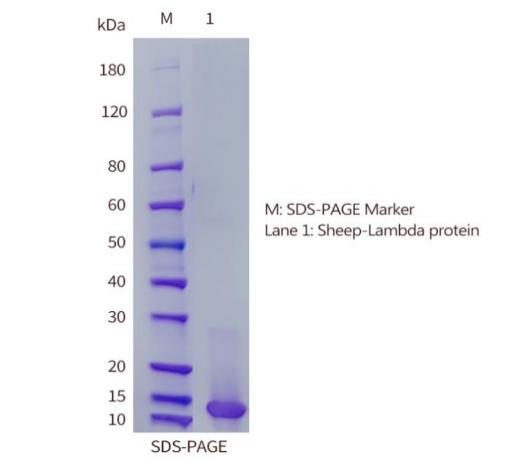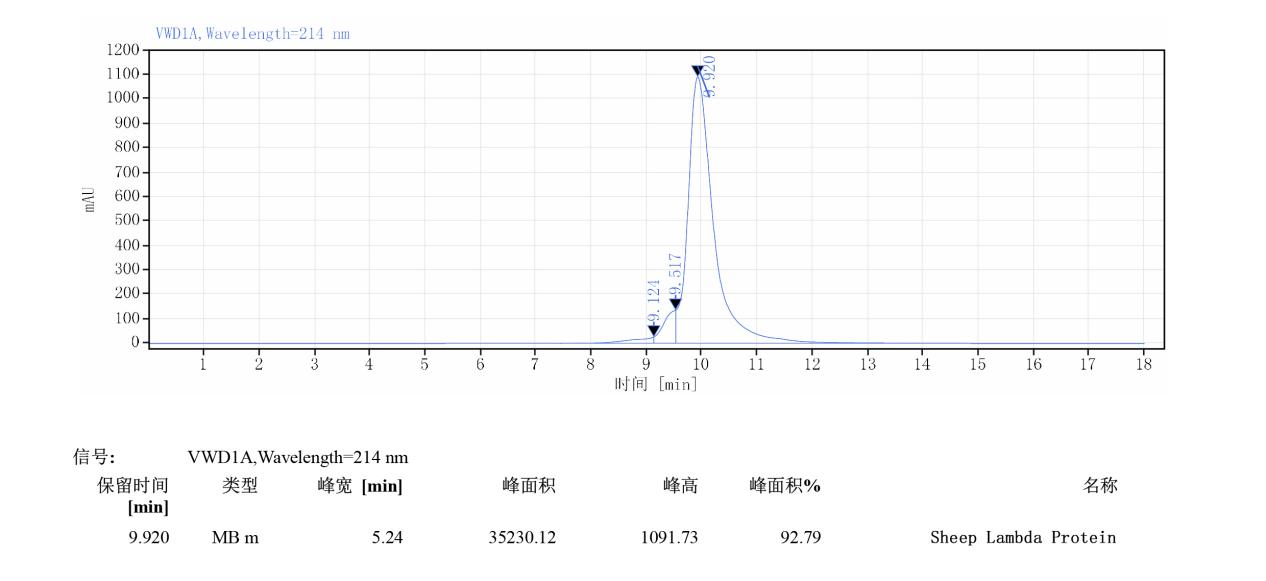
| 名称 | Sheep Lambda Protein |
| 描述 | Integrating HIS tags to express in eukaryotic systems |
| 纯度 | >90% as determined by HPLC |
| 表达宿主 | 293 Cells |
| 种属 | Sheep |
| 分子量 | 13 kDa |
| 缓冲液 | 500mM NaCl, 2.6mM KCl, 10mM Na2HPO4·12H2O, 1.7mM KH2PO4, 5%Sucrose PH:7.4 |
| 稳定性 & 储存条件 |
-80 ℃ packaging and storage to avoid repeated freezing and thawing. |
| SDS-PAGE |

|
| HPLC |

|
Immunoglobulin monomers consist of two heavy chains and two light chains, connected by disulfide bonds. The variable regions of the heavy and light chains together form antigenic determinants. Therefore, the specificity of antibodies is determined by both heavy and light chains. Different subtypes of antibodies have structural differences, and their immunogenicity and in vivo effects vary. Further subdivision and subtype identification of antibodies are of great significance for the study of disease mechanisms and the development of antibody drugs. Among them, light chains are divided into two categories: Kappa and Lambda, with a normal ratio of about 2:1 in the human body. Nearly 40% of light chains in the normal human body are unable to bind with heavy chains every day and are in a free state, known as free light chain (FLC).
FLC is a natural product of B lymphocytes and therefore a unique biomarker for tumors and reactive B cell related diseases. The increase of FLC is associated with malignant plasma imbalance and other lymph node immunoproliferative diseases. Meanwhile, FLC testing is also an important diagnostic aid for various monoclonal globulin diseases. Accurately measuring monoclonal free light chains in serum and urine is particularly important in light chain diseases.

南京德泰生物工程有限公司 Nanjing Detai Bioengineering Co.,Ltd. ©2025 All Rights Reserved